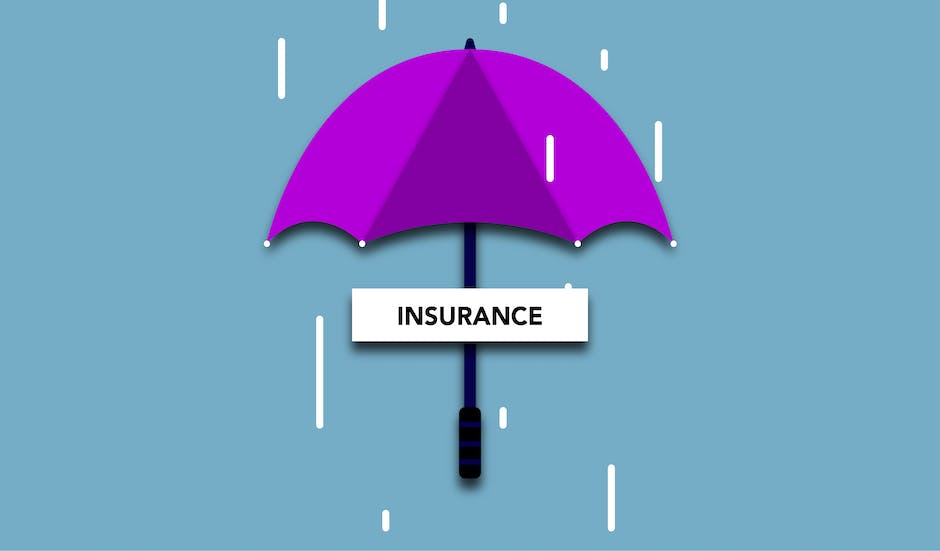In the complex world of rental properties, both landlords and tenants face numerous potential risks and liabilities. Understanding and mitigating these risks can be the key to a harmonious and profitable rental relationship. One tool at the disposal of both parties is renters’ insurance, a type of policy designed to protect tenants and indirectly, the interests of landlords. This comprehensive guide delves into the intricacies of renters’ insurance and emphasizes its importance from a landlord’s perspective.
Understanding Renters Insurance
Renters’ Insurance Basics
Renters’ insurance is a type of policy that covers a renter’s personal property and personal liability within a rental property. While landlords typically have their own insurance, this covers the building and the landlord’s property, but not the tenant’s belongings. Therefore, the introduction of renters insurance can provide a safety net for tenants, protecting their personal possessions against incidents such as theft, fire, or water damage.
Renters’ insurance policies also often include liability coverage, which protects the tenant if someone is injured on the premises and decides to sue. Additionally, in the event of substantial damage or unsuitable living conditions that force the tenant to find temporary accommodation, renters insurance may also cover additional living expenses.
Types of Coverage
The policy generally comes in two types: actual cash value and replacement cost. Actual cash value coverage will pay for the item’s cost minus depreciation. In contrast, replacement cost coverage will reimburse the policyholder for the current cost of replacing belongings, regardless of their used state, up to the policy’s limit.
Renters’ insurance also comprises personal liability and medical payments coverage, applicable if someone other than the policyholder is injured within the rental property. This aspect of coverage can handle medical expenses and potential legal costs.
The Importance for Landlords
As a landlord, it’s essential to understand why renters’ insurance matters. Foremost, it brings an additional level of financial protection that isn’t always offered by standard property insurance. This means that if a tenant’s personal liability incident occurs, and the costs aren’t fully covered by the landlord’s insurance, a tenant’s renters’ insurance could pick up these costs — offering relief to a landlord’s wallet.
One cannot underestimate the peace of mind secured by knowing a tenant’s personal belongings are insured. If, unexpectedly, a tenant’s property is damaged or destroyed, the financial responsibility could fall onto the landlord, particularly if the tenant can prove the landlord is at fault. But with renters’ insurance, a tenant’s possessions are covered, alleviating potential stress for a landlord.
Moreover, when a tenant has renters’ insurance, it indicates that they are responsible and are taking steps to protect against possible risks. This gives landlords assurance that their tenant is accountable, fostering a more reassuring rental environment.
Lastly, in instances where a tenant unwittingly causes property damage, such as a water leak affecting other units, landlords may hold the tenant financially accountable. Without renters’ insurance, situations like these could escalate to legal disputes and create tension between landlords and tenants. Therefore, insisting tenants have renters’ insurance can prevent such issues and facilitate a healthier landlord-tenant relationship.

How Renters Insurance Benefits Landlords
Financial Protection
Renters’ insurance serves as an extra financial safety net for landlords. Including it as a condition in the lease agreement can drastically reduce the risk of tenants defaulting on rent payments due to any sudden, out-of-pocket charges related to damage or loss of personal belongings from unforeseen events. For example, a tenant might struggle to keep up with their rent if they have to replace stolen high-value electronics out of their own pocket. If they have renters’ insurance, the cost of replacement can be covered, allowing them to maintain their rent payments. Additionally, if property damage occurs as a result of a tenant’s oversight, like water leaks or fire, the insurance could help with repairing or replacing the damaged property without touching the landlord’s pocket or hiking their own insurance premiums.
Risk Mitigation
Having renters insurance also serves as a form of risk mitigation for landlords. During accidents or incidents that could lead to substantial property damage like fires, renters insurance can save the landlord from a significant financial loss. It may also provide liability coverage which safeguards landlords from the risk of legal action taken by a tenant for personal injury or property damage that takes place on the property. By reducing the financial impacts of these events, this insurance policy minimizes potential risks that could disrupt the landlord’s income flow and viability of their rental business.
Potential for Dispute Reduction
Renters insurance can also help reduce potential disputes between landlords and tenants. When a tenant faces a loss not covered by the landlord’s insurance policy, such as personal property theft, it can potentially lead to disagreements about who is responsible for the financial loss. By having renters insurance, tenants can directly deal with their insurance company to reimburse their loss, thus lessening the possibility of conflict between landlords and tenants over financial responsibilities. This can foster a better landlord-tenant relationship and reduce the chance of costly and time-consuming legal disputes.
Improved Tenant Screening
Another indirect advantage of requiring renters insurance can be the possibility of attracting more responsible tenants. The requirement for renters insurance may deter those who are not willing to assume proper responsibility for the property they rent. On the other hand, tenants willing to purchase this insurance demonstrates their responsibility and foresight, traits often associated with good renters who care for the property, meet their financial obligations, and are likely to stick to the rules in the lease agreement.
Lowered Maintenance and Repair Costs
Renters insurance also factors into reducing maintenance and repair costs for landlords. Since the insurance covers the tenant’s personal property, landlords do not need to worry about costly repairs or replacements that might be needed due to tenant damage, whether intentional or accidental. This can lead to savings in the long run, enabling better maintenance of the property, increasing its value, and ensuring a steady rental income stream for the landlord.
Importance of Renters Insurance from a Landlord’s Perspective
Throwing light on the significance of renters insurance for landlords, it emerges as more than just an extra burden for tenants. Instead, it serves as a cushioning system for landlords, affording several layers of security. Not only does this insurance grant fortification to the landlords, but it also ensures a more robust and safer rental operation.

Photo by bernardhermant on Unsplash
Tips for Encouraging Tenants to Get Renters Insurance
Understanding Why Renters Need Insurance
Renters insurance, while primarily beneficial for tenants, also offers its perks to landlords. This kind of insurance safeguards the tenant’s personal assets in scenarios such as theft or damage. Furthermore, it provides liability coverage that could cover costs if the tenant inadvertently causes injury to a person or any property. Regrettably, many tenants don’t realize the importance of renters insurance, assuming that the landlord’s insurance will cover any damages. As a result, landlords must play the vital role of enlightening and persuading the tenants to obtain appropriate renters insurance.
Impacting the Landlord’s Insurance Premium
From a landlord’s perspective, the absence of renters insurance can result in higher insurance premiums if tenants’ negligence results in property damage. Landlords’ insurance policies typically cover only the building’s structural integrity. Therefore, without renters insurance, landlords may be held responsible for the damage not covered by their insurance, leading to an increase in their premiums over time.
Lease Agreements and Renters Insurance
One effective way landlords can encourage tenants to obtain renters insurance is by including it as a requirement in the lease agreement. This practice is becoming increasingly common. The lease agreement can stipulate that the tenant obtain a certain level of coverage as part of the conditions for renting the property. By doing so, landlords ensure a level of protection from damages and potential liability claims while also reinforcing the importance of financial responsibility to their tenants.
Educating Tenants on Renters Insurance
Understanding the importance of renters insurance and its benefits is not always intuitive for tenants. Providing educational resources about renters insurance along with clear, straightforward explanations can help. By highlighting instances where renters insurance could protect them, such as in the event of a break-in, fire, or severe weather damage, landlords can ensure that their tenants understand the value and necessity of such coverage.
Creating Partnerships With Insurance Companies
Landlords can go a step further by building partnerships with insurance providers. They can collaborate to create informational workshops and presentations that specifically target their tenants, providing them not only with the necessary information but also with the opportunity to ask questions directly to the insurance experts. These partnerships can result in discounted policies for the landlord’s tenants, serving as an additional incentive for them to get covered.
Fostering a Sense of Shared Responsibility
By encouraging and facilitating the process of obtaining renters insurance, landlords cultivate a shared sense of ownership and responsibility with their tenants. This mutual understanding can lead to a stronger landlord-tenant relationship, encouraging tenants to take better care of the property and to notify landlords promptly of any issues or damages.
Minimizing Landlord-Tenant Disputes
In case of an accident or incident, having renters insurance can minimize potential disputes between landlords and tenants regarding financial responsibility. By ensuring that tenants have adequate coverage, landlords preserve good relations and save themselves potential legal trouble down the line.
Why Renters Insurance is Crucial for Landlords
Encouraging tenants to acquire renters insurance ultimately becomes a beneficial strategy for landlords. This practice not only reduces their financial vulnerability but also cultivates a community of attentive, accountable renters.

Legal Aspects of Renters Insurance
A Primer on Renters Insurance
To understand why this is important, we first need to clarify what renters insurance entails. This policy compensates for damage or loss of a tenant’s personal items in a leased property. Its significance emerges from the reality that a landlord’s insurance typically only covers the physical building, not the tenant’s possessions inside. Furthermore, renters insurance incorporates liability coverage, offering protection in the event a guest is injured on the property and elects to take legal action.
Landlord’s Protection Through Renters Insurance
Despite the main advantage of renters insurance catering to the tenant’s needs, landlords can also benefit from requiring renters insurance in their lease agreements. The first among these advantages concerns issues of liability. A tenant’s renters insurance policy will shoulder the medical costs and legal fees should a visitor sue after an injury on the rental property. In the absence of renters insurance, the injured party may instead pursue the landlord for compensation. By obligating tenants to have a renters insurance, landlords transfer the liability arising from such incidents onto the tenant and their insurance company.
Renters Insurance and Property Damage
Another crucial aspect is the coverage for property damage. While a landlord’s insurance covers damage to the property structure due to perils like fire, storm, or vandalism, it typically exempts the tenant’s personal property. However, if a tenant accidentally causes damage to the property, like a fire, the landlord’s insurance policy may refuse to accept the claim. In such situations, the tenant’s renters insurance can step in, protecting the landlord from significant financial loss.
Compliance with Local Laws
The legal aspect surrounding renters insurance varies by location. In some States, landlords have the right to require renters insurance as a condition of the lease. This stipulation can benefit both parties as it reassures the landlord against potential claims and ensures the tenant is protected against personal property loss. In contrast, in other jurisdictions, landlords cannot legally mandate renters insurance. Thus, it is of paramount importance that landlords familiarize themselves with local laws pertaining to renters insurance before including such provisions in their lease agreements.
Potential Legal Disputes
Another key aspect revolves around potential legal disputes. If, for instance, a tenant’s property is damaged or stolen and the tenant does not have renters insurance, they might try to hold the landlord accountable. But if the lease explicitly states that the tenant is responsible for securing their property through renters insurance, the landlord has a solid defense. This kind of proactive strategy can potentially avert time-consuming and expensive litigation.
The Benefits of Protection
Requiring tenants to carry renters insurance can offer landlords invaluable peace of mind. The assurance that any potential property damages or liability claims are protected against the threat of financial catastrophe can be a significant relief. Additionally, the presence of renters insurance can act as a measure of a tenant’s responsibility and foresight, as it shows they value the safeguarding of their assets and are cognizant of potential liabilities. It creates a mutually beneficial scenario, providing a security net for both landlord and tenant.

Case Studies of Renters Insurance
An Unforeseen Crisis Resolved
A passionate young man from New Jersey, fresh out of college with aspirations of launching his own tech-startup, decided to rent a high-end apartment in Newark. Excitedly, he wasted no time in transforming his new home into a fully functional office space, kitted with top-tier electronics, servers, and other technological devices.
However, his dreams were temporarily submerged when a severe heating issue led to a burst pipe, flooding his entire apartment during the depths of winter. The water damage was substantial, devastating his electronics and documents. Luckily, despite initial reservations from his landlord, the young man had secured renters insurance. This coverage not only allowed him to replace his lost equipment and recover his financial losses, but it also saved the landlord from facing any potential liability.
The landlord dodged a bullet as well, as the renter’s insurance covered the additional living expenses the young man faced due to the temporary inhabitable state of his flooded apartment.
The Denver Fire
Across the country in Denver, a similar tale of woe quickly turned into a sigh of relief for both the renter and the property owner. An elderly woman, living in a rented apartment, accidentally left a stove burner on when she went to bed. The resulting fire gutted the entire apartment, causing significant damage.
Fortunately, both she and her landlord were prepared. She had renter’s insurance that covered all her personal belongings and provided liability coverage, which saved her from financial ruin. The landlord, on the other hand, also escaped potential legal liability in this scenario.
The Atlanta Allure
In 2018, a young couple moved to Atlanta, lured by its thriving music scene and vibrant culture. They rented a beautiful loft near the city center. They purchased renter’s insurance upon the encouragement of their landlord who preferred tenants having insurance to avoid any disputes over damage or property loss.
Within months of living there, a monstrous windstorm hit the city, shattering their loft windows, leading to significant property damage. But, their renter’s insurance covered the cost of the damages as well as hotel expenses while their loft was undergoing repair, saving them from drifting into a potential sea of financial turmoil.
The landlord, recognizing the value of tenants having insurance, dodged the possibility of having disagreements over the damage costs, thereby preserving the landlord-tenant relationship and limiting their own liability.
The common thread that ties these stories is the shield provided by renters insurance.
It provides financial coverage and liability protection to the renters, while simultaneously preventing landlords from facing potentially expensive and relationship-fraught disputes. Each story echoes the mutual benefits for both parties, underlining the importance of renters insurance as an essential aspect of renting in today’s world.

Photo by shanerounce on Unsplash
The realm of rental property management is fraught with potential challenges, however, tools like renters’ insurance can create a safety net that benefits both tenant and landlord alike. By fostering the understanding and encouraging the adoption of renters’ insurance, landlords not only helm the ship of risk management skillfully but also demonstrate a level of care for their tenants’ wellbeing. The financial protection, mitigation of disputes, and time saved through such measures create a sense of security, contributing to a conducive atmosphere for rental relationships to thrive. Having authentic case studies also helps to underline the advantages of renters’ insurance. Hence, it can be considered a right step forward in the journey of successful rental property management.
